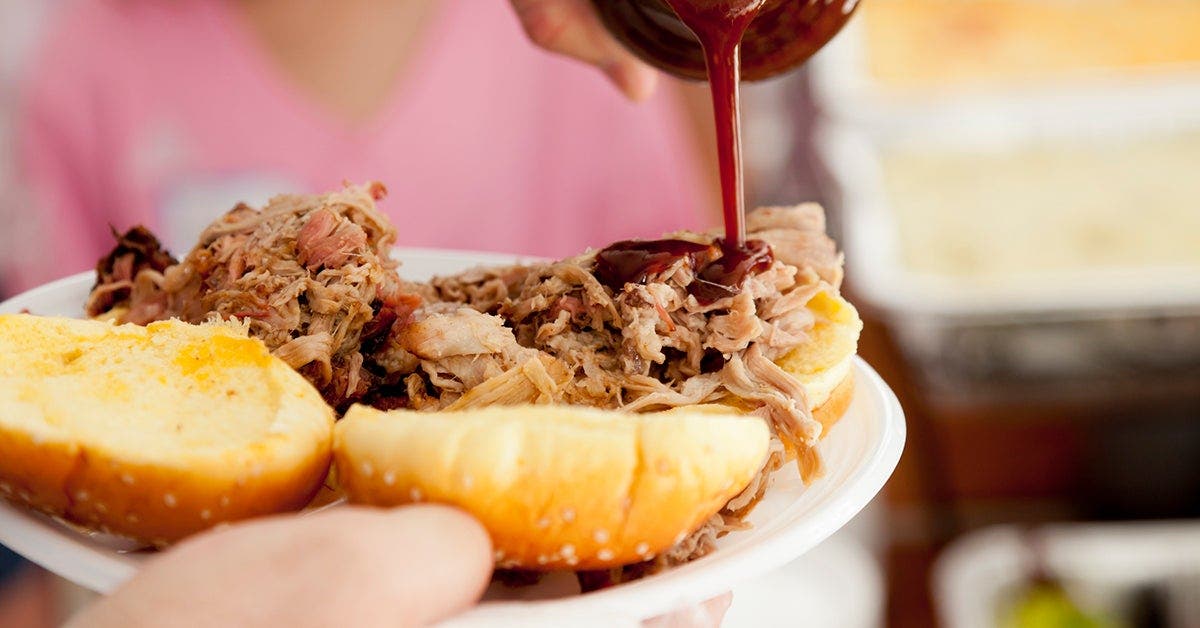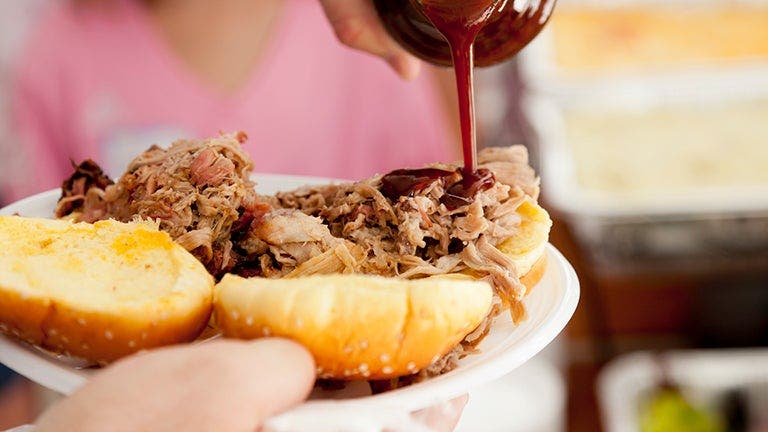What causes heartburn?


If you’ve ever felt discomfort in your chest or the back of your throat after eating a meal, chances are you’ve experienced heartburn. While common and often benign, heartburn can sometimes be a symptom of a larger health concern—particularly when it’s chronic.
Read on for a summary of what causes heartburn, how to handle it, and what your particular symptoms mean.
What is heartburn?
Heartburn is typically caused by acid flowing back up from the stomach into the esophagus, also known as gastroesophageal reflux (or sometimes just reflux). When it strikes more than twice a week along with symptoms such as trouble swallowing, weight loss, or esophageal bleeding, heartburn is classified as (GERD).
Less frequently, heartburn may strike in the absence of excessive acid exposure: Allergies or a sensitive esophagus could be the culprit, says Dr. Gil I. Ascunce, MD, a board-certified gastroenterologist in New York City.
What’s more, the older you get, the more likely you are to experience heartburn: People over the age of 50 encounter it more often, says gastroenterologist Dr. Kevin Ghassemi, MD, clinical chief of UCLA's division of digestive diseases.
Heartburn symptoms
Described as an uncomfortable burning sensation that rises from the stomach up through the chest and to the neck and throat, heartburn can also bring about a bitter or sour taste, according to the American College of Gastroenterology.
What is the cause of heartburn?
Typically, heartburn is caused by reflux, or a backflow of acid and/or contents from the stomach when it enters the esophagus, which contributes to irritation and can leave you anywhere from mildly uncomfortable to desperate for relief, says Dr. Nicholas E. Anthony, MD, chief of gastroenterology and medical director for Atrium Health Gastroenterology and Hepatology in Pineville, North Carolina.
Reflux is a sign that your lower esophageal sphincter, the muscle that separates the esophagus and the stomach, isn’t doing its job correctly: After you eat, this muscle relaxes to allow food to pass into the stomach, then closes tightly. Sometimes, though, the muscle is too weak to close fully, leaving the esophagus vulnerable to acidic irritation. The good news: Oftentimes, you can sidestep discomfort from the get-go by identifying and avoiding common triggers such as:
- Certain medications: Some blood pressure medicines (calcium channel blockers and nitrates), female hormone therapies (such as birth control), depression meds, and heart arrhythmia medications can weaken the lower esophageal sphincter and cause reflux, Dr. Ghassemi warns. Concerned that a prescription may be triggering heartburn? Always consult your doctor before skipping a dose.
- Excess weight: This can put pressure on the stomach, forcing its contents to move upwards in the esophagus, Dr. Ghassemi says. Heartburn can also crop up during pregnancy for this very reason plus other factors such as increased progesterone, which can impact the lower esophageal sphincter’s mobility.
- Carbonated beverages: It makes sense that bubbly water and soda can cause bloating that messes with the lower esophageal sphincter’s ability to close properly—one reason to avoid carbonated drinks if you notice that they tend to trigger heartburn. That said, the jury is out on whether these beverages directly cause symptoms, according to a 2010 review of 17 studies published in Alimentary Pharmacology & Therapeutics.
- Overeating: Temporary sphincter weakness could stem from stomach stretching after overeating or eating too quickly. It’s why GERD sometimes accompanies binge eating disorder, or recurrent episodes of eating large quantities of food very quickly to the point of discomfort and without control, according to the National Eating Disorders Association (NEDA).
- Hiatal hernia: Common among adults over 50, this condition is characterized by the top part of the stomach pushing into the chest cavity, which weakens the lower esophageal sphincter and makes it easier for acid to back up into the esophagus. The exact cause is unknown, according to the National Institutes of Health (NIH).
- Trigger foods: Although different people are affected by different ingredients, observing your eating habits can help you identify any recipes or ingredients that contribute to heartburn, says registered dietician Jerlyn Jones, MS, spokesperson for the Academy of Nutrition and Dietetics.
5 kinds of foods that may cause heartburn
Constantly battling heartburn? Look out for the most common triggers, which may include:
- High-fat foods: Dietary fat takes longer to digest than protein or carbs, so a meal that includes say, a cheeseburger and French fries, can linger in the stomach, delay stomach emptying, and put you at a higher risk for reflux and heartburn, Jones says.
- Spicy foods: While the NIH cites spicy foods like salsa, chili, and some curries as potential heartburn triggers, there is still limited evidence that eating a spicy meal will always provoke symptoms, according to a 2015 review of 218 abstracts published in Therapeutic Advances in Chronic Disease. That said, if spicy foods tend to set your chest on fire, there’s no harm in avoiding them.
- Chocolate: Because chocolate can increase acid in the esophagus, eating it could lead to heartburn. However, only a few small studies have confirmed the connection between everyone’s favorite confection and the common symptom—and strong evidence that chocolate causes heartburn is sparse, according to a 2015 review of 15 articles published in the Colombian journal Revista Colombiana de Gastroenterología.
- Acidic foods: Since an overabundance of acid can trigger heartburn, you might think that foods like citrus fruits and juices would make the contents of the stomach more acidic and bring about symptoms. However, acidic foods only bring about heartburn in some patients, according to a 2019 literature review in the Journal of Thoracic Disease, which concludes that trigger foods actually vary quite a bit among individuals.
- Alcohol: Alcohol may encourage the lower esophageal sphincter muscle to relax and fail to close properly, thus bringing about heartburn. In fact, people who drink less than three to five times per week have a 35% chance of dealing with GERD, while those who drink more often have a 55% chance of GERD symptoms, according to a 2018 meta-analysis of 29 studies published in the journal Alcohol and Alcoholism.
How to get rid of heartburn
With all we know about heartburn, there's no reason to suffer through symptoms. These remedies can help prevent and relieve heartburn:
Lifestyle modifications
Depending on your triggers, there are three ways to reduce reflux-related heartburn and GERD, Dr. Ascunce says. They include: weight loss; maintaining an upright position for three hours after a meal, since gravity can help keep acid from rising into the esophagus; and elevating the head of your bed to create a slanted position. (Propping yourself up on a couple of pillows won’t typically cut it, Dr. Ascunce says. You’ll need to put blocks under your bed frame legs.)
If symptoms are chronic in nature, medication may help—so talk to your doctor.
Heartburn medicine
Available in pill, tablet, and liquid form, antacids such as Tums and Mylanta neutralize stomach pH and provide relief within about five minutes, making them a good option for infrequent reflux, Dr. Anthony says.
If you experience heartburn more than once a week, though, prescription medications can provide relief. These medications fall into two categories: protein pump inhibitors (PPIs) like Omeprazole or Pantoprazole, and histamine blockers (H2 blockers) like Famotidine and Ranitidine. While both kinds of drugs reduce stomach acid, according to Dr. Anthony, PPIs must be taken daily for at least two weeks for results while H2 blockers are used on an as-needed basis for quicker relief.
Your doctor can help direct you toward the reflux medication that’s right for you.
Home remedies for heartburn
Along with raising your bed, staying upright three hours after eating, and avoiding large meals, Jones recommends keeping a food diary for a week to track potential triggers—the first step to avoiding them. Record what you eat and when, then note which symptoms you experience. Share the info with your doctor or dietitian so they can help you tweak your diet.
Foods that may help relieve heartburn
In the same way that no one food causes heartburn, there’s no one food that can cure it. That said, here are some options that may alleviate discomfort:
- Ginger: In small doses of about 2 grams, ginger supplements can act as an anti-inflammatory and may help ease heartburn, Jones says.
- Low-fat milk or yogurt: Low-fat dairy acts as a temporary buffer against acid in the stomach, which may provide some relief from reflux symptoms, Dr. Anthony says.
- High-fiber foods: Foods like green vegetables and oatmeal, which deliver at least 5 grams of fiber per serving, are associated with a lower risk of heartburn, Jones says. That’s because increasing your fiber intake can increase esophageal sphincter pressure and help it close properly, according to a small 2018 study of 36 GERD patients published in the World Journal of Gastroenterology.
How dangerous is heartburn?
When reflux is left unchecked, it can cause damage to the lining of your esophagus, and lead to inflammation, ulcers, bleeding, and scarring. What’s more, it can even increase your risk of esophageal cancer, according to The American College of Gastroenterology.
If you find yourself reaching for over-the-counter medications or home remedies to treat your reflux more than once a week, you should see a physician to help you get to the root of the problem, Dr. Ghassemi says. Otherwise, nourishing your body with whole foods, participating in physical activity, and managing your weight can reduce your risk of heartburn naturally.
--
This article was reviewed for accuracy in June 2021 by Tiffany Bullard, PhD, manager for clinical research at WeightWatchers®. The WW Science Team is a dedicated group of experts who ensure all our solutions are rooted in the best possible research.
Related articles
